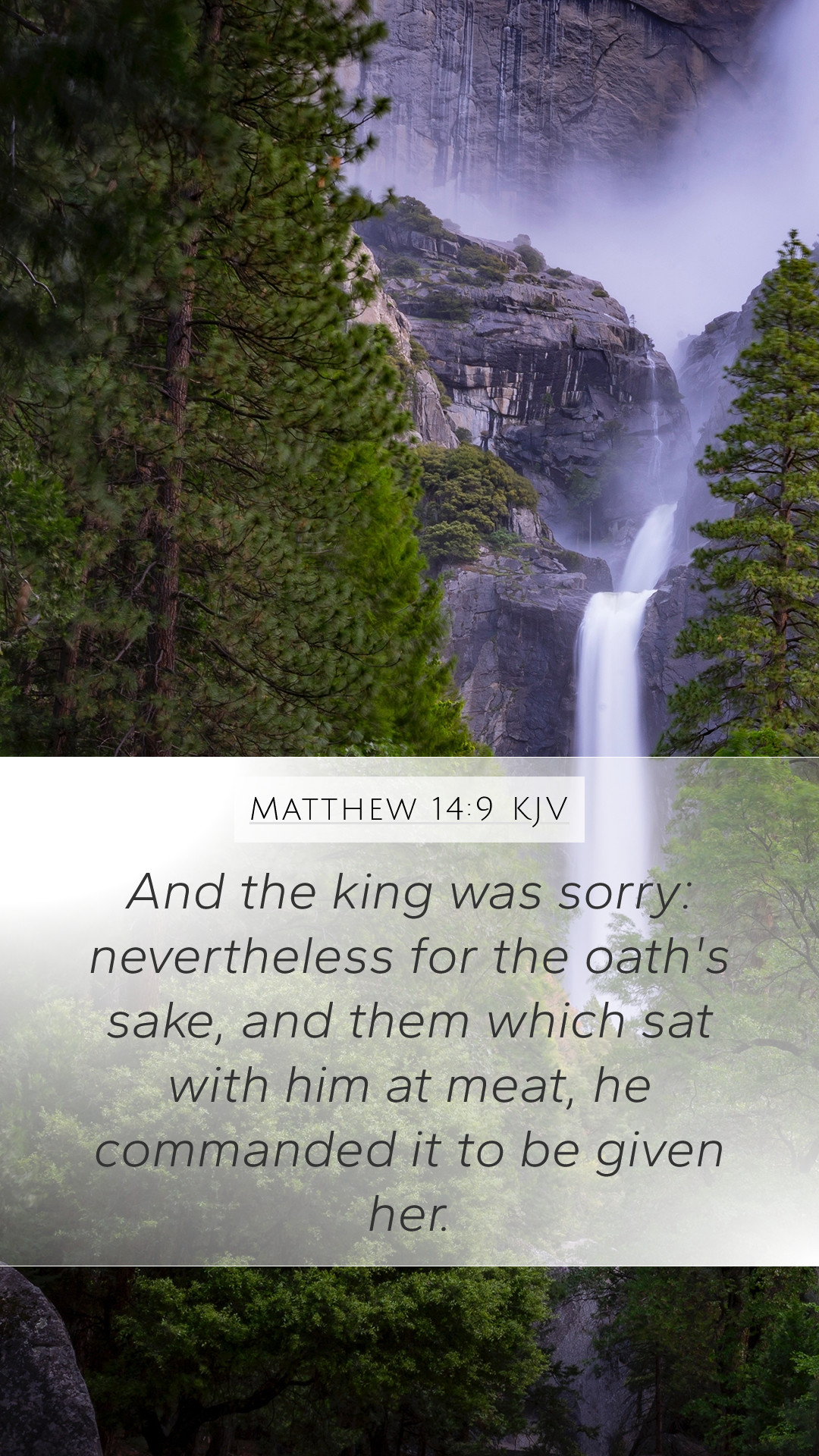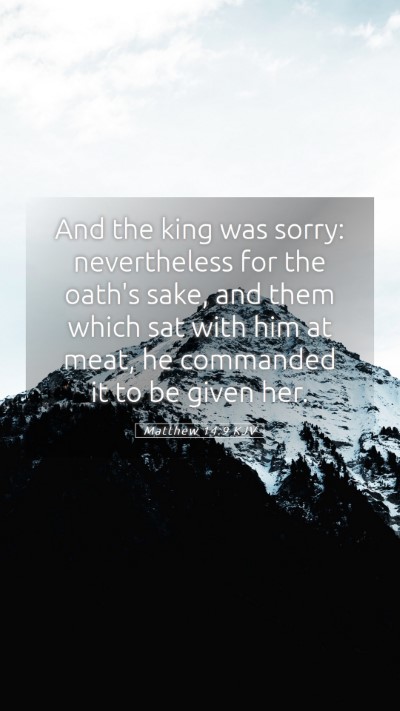Understanding Matthew 14:9
Bible Verse: Matthew 14:9
Verse: "And the king was sorry: nevertheless for the oath's sake, and them which sat with him at meat, he commanded it to be given her." (KJV)
Overview and Context
Matthew 14:9 occurs within a dramatic narrative where King Herod is confronted with a dilemma after a rash promise made during a banquet. This moment encapsulates themes of influence, regret, and the consequences of actions taken under duress.
Insights from Commentaries
-
Matthew Henry's Commentary
Matthew Henry highlights the emotional turmoil of Herod as he realizes the gravity of his promise, expressing both sorrow and indecision. The king finds himself trapped between his public oath, the expectations of his guests, and the moral implications of his decision. This demonstrates how powerful external influences can dictate our actions, even against our better judgment.
-
Albert Barnes' Commentary
Albert Barnes emphasizes the significance of Herod's fear of losing face before his guests and the legal restrictions tied to his promise. This illustrates the societal pressures of leadership and the moral dilemmas faced by those in authority. Barnes suggests that Herod's eventual compliance highlights a failure of moral courage, showcasing how fear of man can lead to grievous sins.
-
Adam Clarke's Commentary
Adam Clarke delves into the psychological aspect of Herod's decision, noting that his regret was overshadowed by the desire to maintain his reputation. Clarke discusses the implications of Herod's actions in relation to his character and leadership, framing this passage as a cautionary tale about the cost of pleasing others at the expense of one's values.
Key Themes and Lessons
- The Struggle of Leadership: Leaders often face pressures that can lead to morally questionable decisions. Herod's predicament serves as a reminder of the burdens of leadership and the need for integrity.
- Consequences of Promises: The verse illustrates the weight of promises, particularly when made thoughtlessly. It calls for caution in making commitments, urging individuals to consider their implications.
- Influence of Others: The influence of one’s peers can lead to actions that one might regret. This emphasizes the importance of standing firm in one’s moral beliefs despite external pressures.
Bible Cross References
- Mark 6:26 - A parallel account of Herod's dilemma.
- Matthew 14:4 - The initial reason for Herod's promise, relating to John the Baptist's imprisonment.
- Ecclesiastes 5:2-5 - A warning against making hasty vows.
Applying the Verse to Daily Life
When confronted with difficult decisions, it is essential to weigh the influence of external pressures against personal morals. This verse serves as a reminder to evaluate the integrity of our promises and to seek wisdom in leadership roles.
Conclusion
Matthew 14:9 encapsulates the conflict between personal conviction and public expectation. By analyzing this verse through the lenses of different biblical commentaries, we gain deeper insights into the complexities of human behavior and the importance of steadfastness in our principles. This verse invites us to reflect on the meaning of our own commitments and the influence of those around us, urging a balance between integrity and social obligations.


